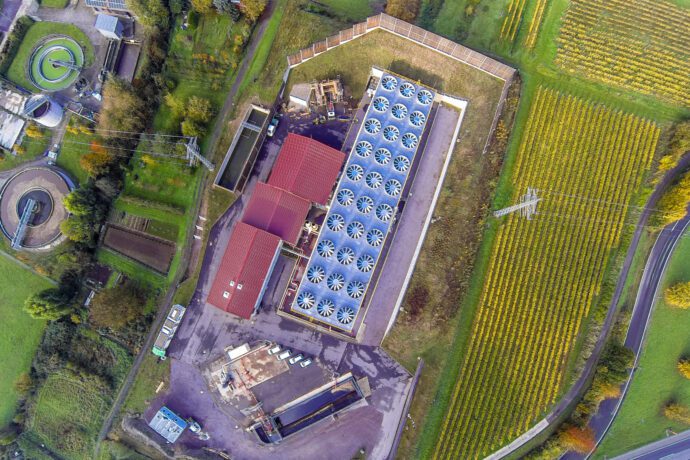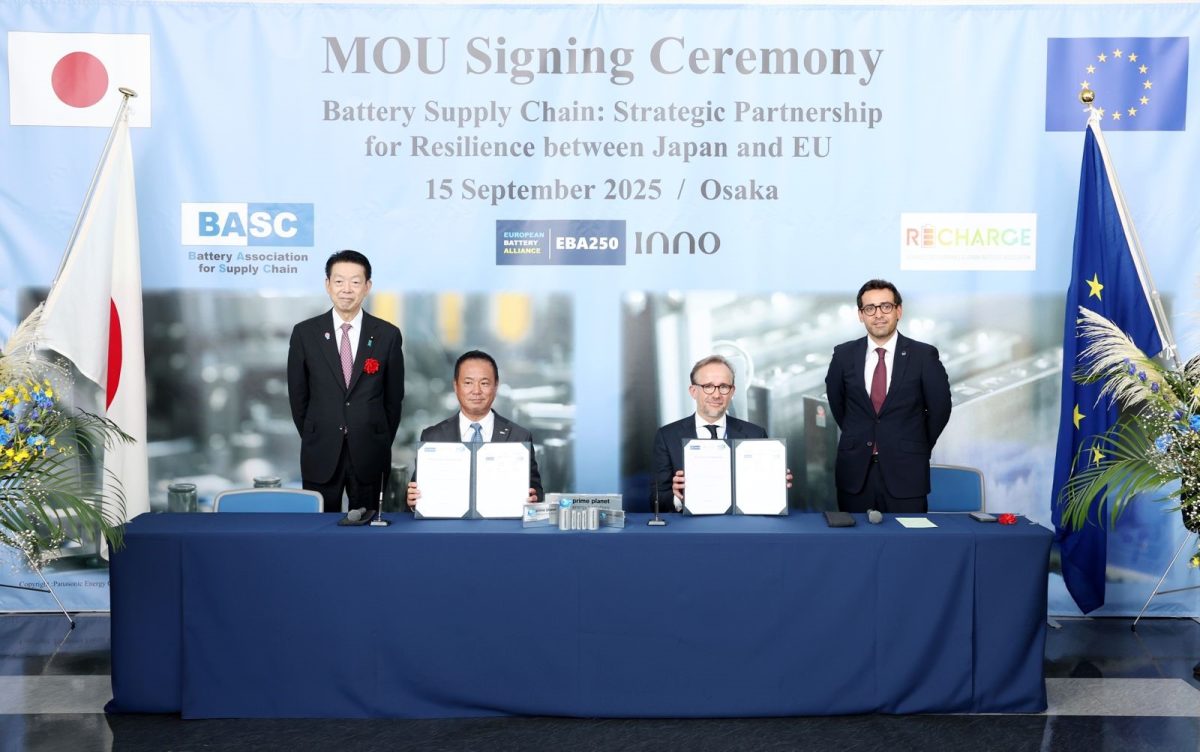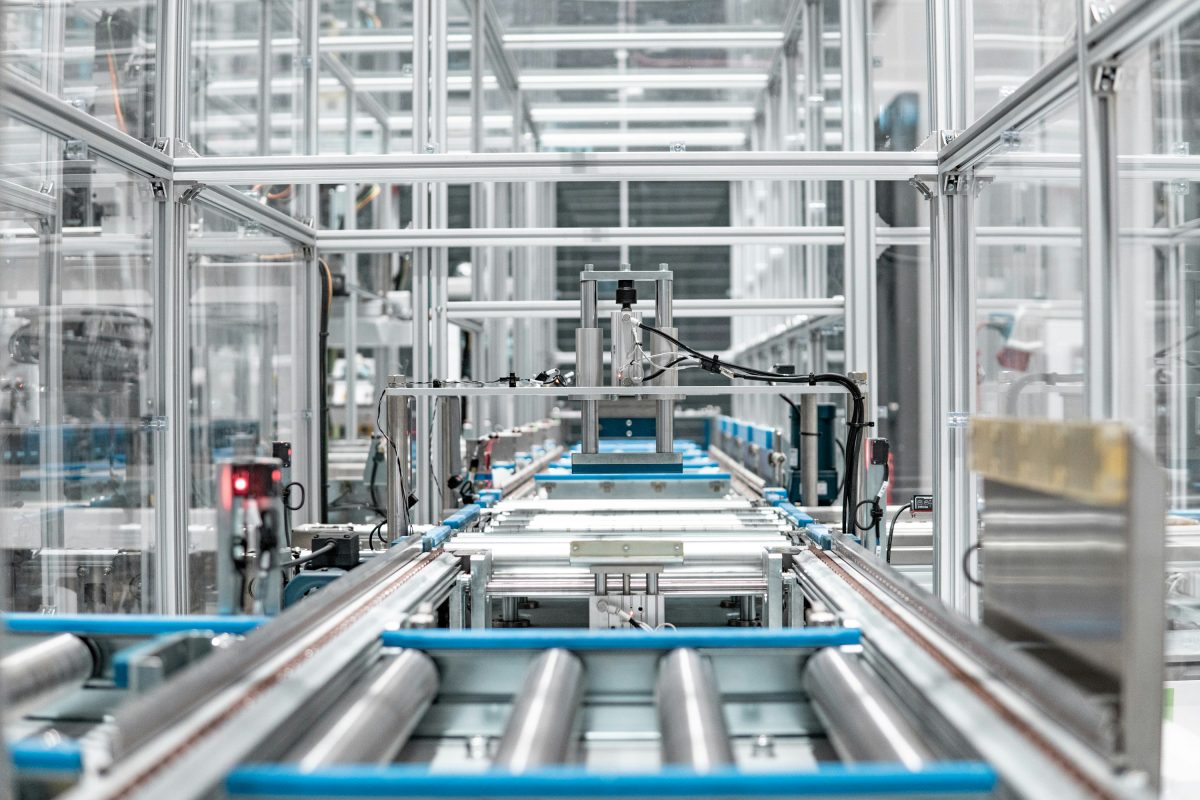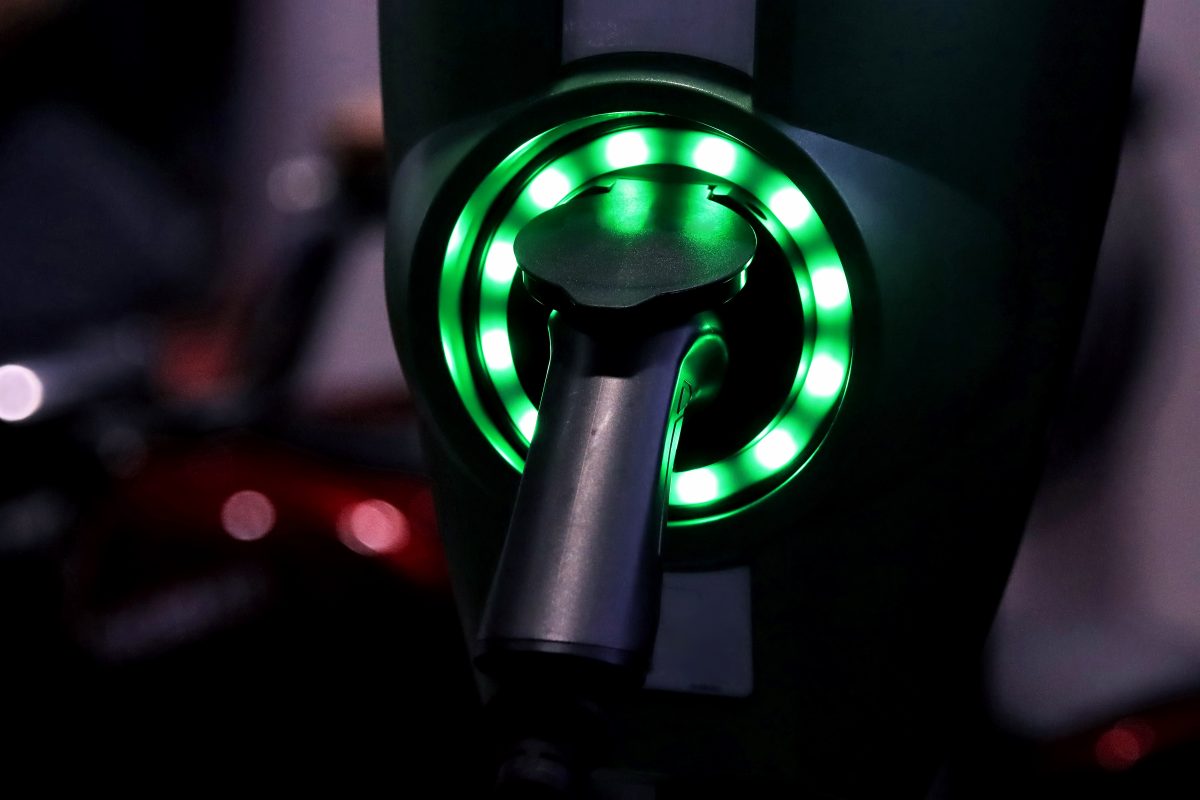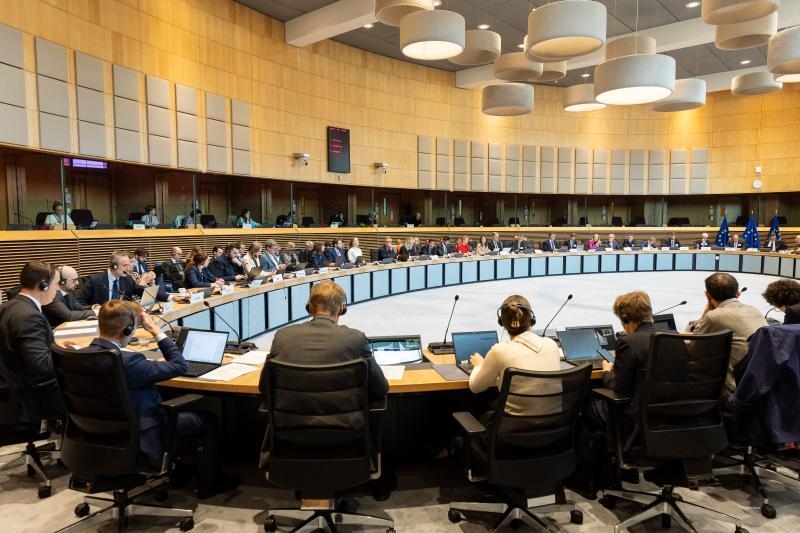
Sep 30, 2025
High-Level Ministerial Meeting: Securing Europe’s Industrial Future
Today, a joint High-Level Ministerial Meeting of the European Battery Alliance (EBA) and the European Solar Industry Alliance (ESIA) was held in Brussels, chaired by Executive Vice-President Stéphane Séjourné and moderated by Kerstin Jorna. The meeting brought together Member States, the European Commission, the European Investment Bank and representatives from across Europe’s battery and solar value chains to review progress and discuss decisive measures to strengthen Europe’s industrial leadership in batteries and solar PV – two strategic pillars of the EU’s energy and industrial sovereignty.
While the opening discussions acknowledged both sectors, the meeting was also an opportunity for the EBA to emphasize the urgency of targeted policy action to enable the EU battery industry to scale, remain competitive globally, and anchor strategic jobs and investments in Europe.
A defining moment for Europe’s battery industry
The discussions highlighted the strategic role of batteries in achieving Europe’s climate, industrial, and mobility ambitions. Batteries represent 30 to 40% of the value of an electric vehicle, making them a core driver for Europe’s automotive sector and the millions of jobs it sustains. Without robust domestic battery production, Europe risks depending on foreign suppliers, which could undermine its industrial resilience and economic sovereignty.
Despite progress, significant challenges persist:
- Global dependency: 90% of global battery production is concentrated in non-EU companies, creating strategic dependencies for Europe.
- Cost competitiveness: European manufacturers face production costs approximately 20% higher than Asian competitors.
- Capital intensity: Building a battery industry from scratch requires substantial time and investment. Battery manufacturing is not a plug-and-play business, and scrap rates of 15–30 per cent during early production are standard.
A common industry voice
Industry representatives from the EBA250 network stressed one clear message: Europe must act now to safeguard mobility independence and industrial resilience. Key points raised included:
- Strategic autonomy: European EV production depends on European batteries. Local content requirements across the EV and BESS value chains are essential to anchor jobs, investment, and industrial resilience.
- Competitiveness: Support during critical ramp-up years is crucial. Public mechanisms should contribute to bridge a temporary competitiveness gap through production-linked aid over purely capital expenditure.
- Circularity: EU-mandated recycling is necessary to secure long-term access to critical raw materials. Viable recycling relies on upstream production being located in Europe.
- Energy security: The battery energy storage system (BESS) market is growing at twice the pace of the EV segment, and Europe’s grid resilience depends on a strong domestic battery manufacturing base.
Coordinated action for industrial leadership
Diego Pavia, CEO of InnoEnergy, representing the EBA, underlined that Europe’s battery pipeline is strong and ready to deliver – from raw materials to gigafactories and recycling. Homegrown projects could meet a significant share of EU demand by 2030 while advancing the broader value chain. But he also warned that decisive, coordinated action is needed to:
- Provide temporary, output-based production support to bridge competitiveness gaps during industrial ramp-up.
- Introduce binding resilience and local content requirements to give investors confidence that European-made products will be prioritised.
- Ensure a level playing field with Asian competitors, addressing unfair practices and overcapacity while enabling partnerships that support Europe’s strategic interests.
The path forward is clear: Europe must act now to build batteries in Europe, for Europe. Building a strong, integrated, and circular value chain is not just about batteries – it is about securing Europe’s strategic autonomy, industrial jobs, and leadership the global energy transition with confidence.
More EBA250 news
The European Battery Alliance (EBA) welcomes today’s announcement by Executive Vice-President Stéphane Séjourné on…
Vulcan Energy has reached a major milestone with the Final Investment Decision (FID) for…
We are pleased to announce that today we have signed a Memorandum of Understanding…
The European battery sector does not need a new strategy – it needs a…
U.S.-based battery innovator Lyten has signed binding agreements to acquire all of Northvolt’s remaining…
The European Battery Alliance (EBA) welcomes the European Commission’s swift decision to award €852…
Last week, the European Commission published the Clean Industrial Deal State Aid Framework (CISAF),…
We are pleased to welcome Emma Nehrenheim as new Managing Director of the European…
As Europe’s battery cell manufacturers face increasing competitive pressure, EBA250 remains actively engaged in…
InnoEnergy, the driving force behind the EBA250 initiative, introduces today its new brand identity,…

